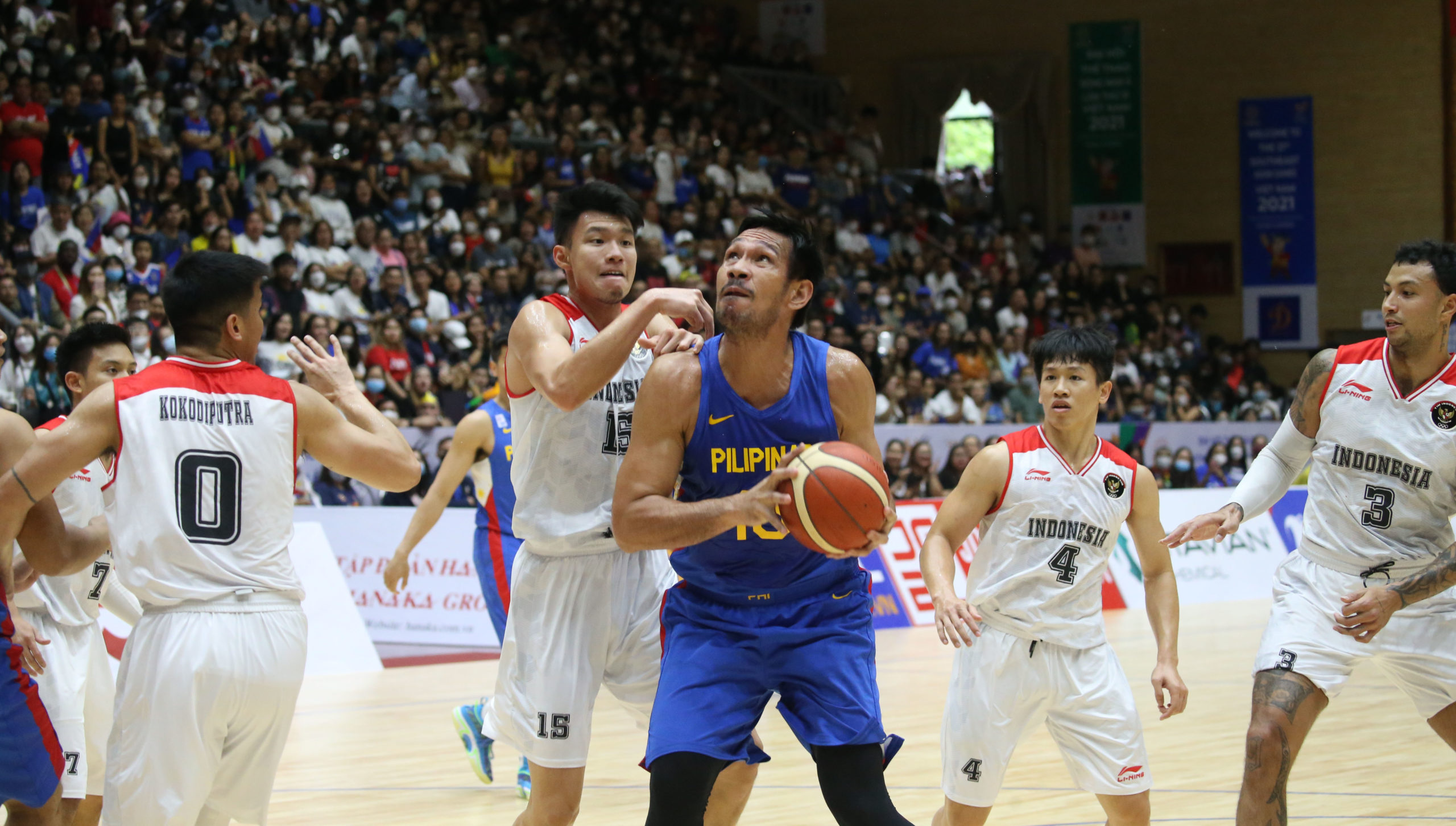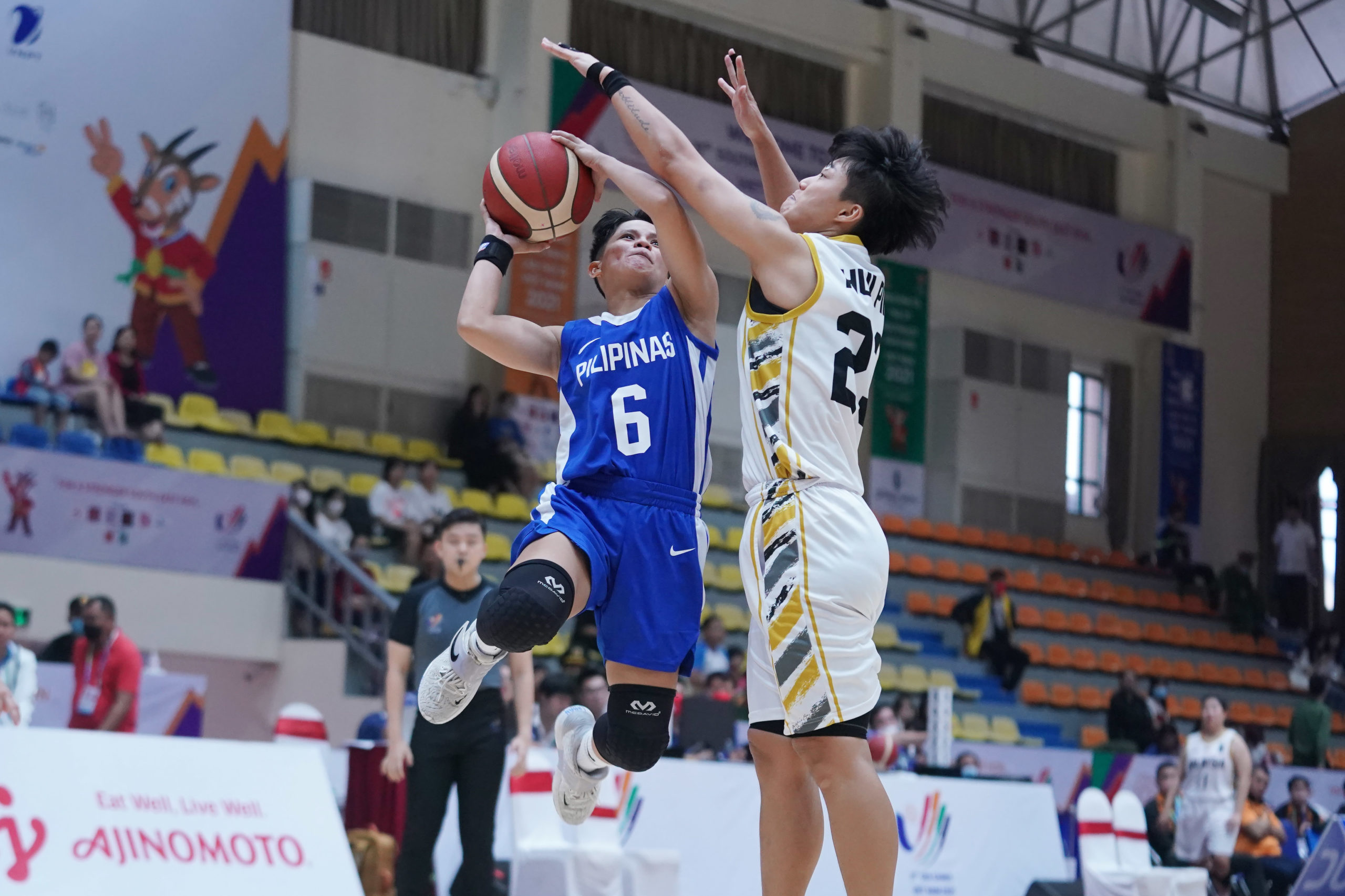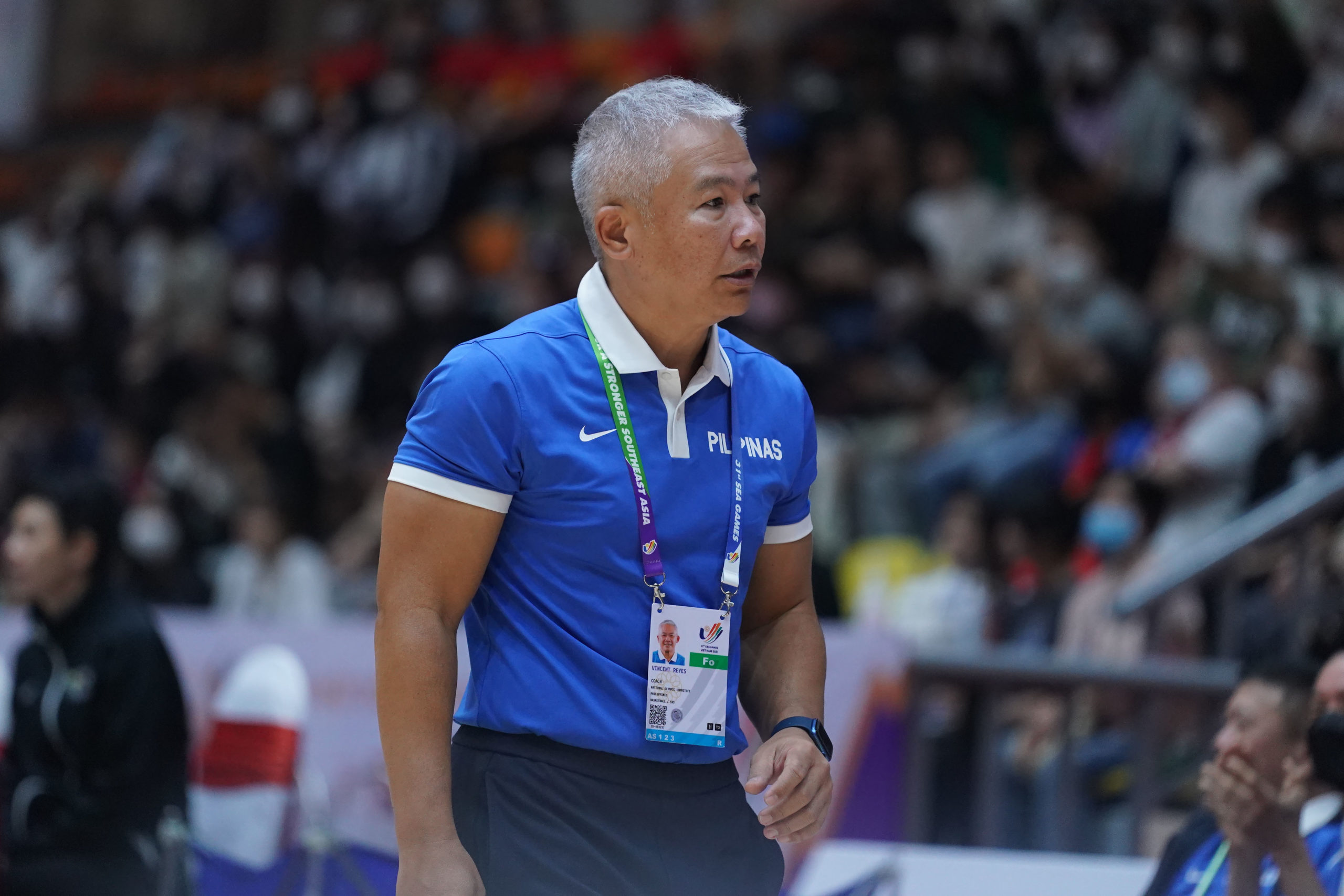With stunning SEA Games victory, Indonesia shreds Philippines’ aura of invincibility

The Philippines’ June Mar Fajardo (middle) finished with 20 points and nine rebounds against a swarming Indonesia defense.—CONTRIBUTED PHOTOS
There is a tiny corner of the world where the Philippines can still flex its dominance of a sport it is overly infatuated with.
On Sunday, a hot-shooting team which finally fished a key weapon out of its pocket intruded on that space.
Indonesia, leading off with laser-guided three-point shooting and unleashing naturalized player Marques Bolden, stunned Gilas Pilipinas, 85-81, on Sunday to win its first-ever gold medal in the men’s basketball event of the Southeast Asian (SEA) Games.
For the Philippines, it was the first time in 33 years that it surrendered its regional stronghold—and the defeat comes just 14 months before it cohosts the Fiba World Cup.
“That’s life. Sometimes, things don’t work out the way we want,” said national coach Chot Reyes, the Gilas Pilipinas program director on whose shoulders lie the task of building a competitive team for the global basketball showcase.
At Thanh Tri Gymnasium, that program couldn’t get the job done on the regional level.
“We’ve been saying this from the start,” Reyes said. “We can no longer treat Southeast Asia [basketball] as a joke. In the future, we have to prepare [and] … take the Southeast Asian Games seriously.”
Women save PH pride

Chack Cabinbin (No. 6) and the Gilas Pilipinas women take home their second straight SEA Games gold medal.
Gilas’ women’s team also lost on Sunday, watching Malaysia score the game’s last 10 points in a 96-93 result.
But that team still wound up with its second straight SEA Games gold.
The tournament format in basketball calls for a single round robin, with the team owning the best record awarded the gold medal.
Because of a better quotient, the loss was immaterial for the women, who ended up with their lone loss in the tournament.
The men had no such cushion.
Indonesia and the Philippines entered the court with similar 5-0 records, turning their match into a battle for the gold. And the Indonesians, whose program was written by Rajko Toroman, the architect who drew up the original Gilas Pilipinas blueprint, unveiled a game plan—and a roster—designed for this game.
Firing bricks

Gilas Pilipinas coach Chot Reyes in the 31st SEA Games. SEA GAMES POOL
Indonesia used the dribble-drive offense—the system that gained the Philippines several huge wins internationally—to generate scoring from beyond the arc. Indonesia hit 13 of their 31 attempts from that range while the Philippines made just three out of 16 shots from the same distance.
Bolden, who played ultra sparingly in the tournament, suited up for 32 minutes on Sunday and finished with 18 points and 10 rebounds.
“Obviously that’s on me. I take full accountability and responsibility for the result,” Reyes said.
Obviously, too, this is far from the final look of the team that will compete in the World Cup. The program’s young cadets were absent, locked up by their commitment to their schools or foreign clubs. But it was a squad that, Reyes said, was still good enough to rip the field to shreds and maintain the Philippines’ iron grip of the regional throne.
“[W]e had a team that still could get the job done. Our players played their best,” said Reyes, after emerging from the dugout. “Indonesia came with a very good game plan. They shot well from the three-point line. In the end, we just couldn’t match it.”
Matthew Wright led the way for Gilas with 23 points, June Mar Fajardo added 20 more as the Nationals settled for a silver medal—the first time since 1989.
